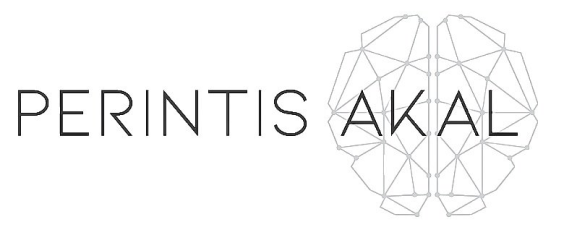By Nyoomi Rasiklal Kamani
“We feel that only when we are challenged with our backs against the wall, innovation and ideation takes root…”
Having joined PEMANDU a little over a year ago, I have been witnessing evident outcomes achieved by our Big Fast Results (BFR) methodology. Some of the governments that have actually deployed this methodology, customised to deliver their economic transformation, included Malaysia, Tanzania, South Africa (whose ‘Phakisa!’ transformation programme translates to ‘Faster!’), Oman, Maharashtra, Andhra Pradesh. More recently, PEMANDU has been tasked to work on similar projects in Russia, Botswana, Nigeria and Senegal, of which I have personally been involved in.
Anchoring BFR is a 6-8 week lab process, where our consultants, analysts and project stakeholders engage in intense discussions to achieve consensus on a project’s high-level True North and its granular action plan which outlines step-by-step actions, persons responsible, timelines, budget requirements and measurable targets.
Our labs are also divided into four phases: pre-labs (determining the work scope), labs (where our stakeholders are required to be present), post-labs (where the detailed implementation plans agreed upon in the labs are scrutinised) and syndication sessions (ensuring that our client and all their stakeholders provide feedback on the lab and agree on its final outcome).
Business Unusual
As a newcomer to BFR, I admit that there were nuances which caused me to pause momentarily as the 6-8 week period is both rigorous and can be overwhelming, especially to a newbie. However, I was able to see the importance and significance of this timeframe as it involved analytics, solutioning and detailing of intended plans to mobilise transformation.
This time is used to not only gather, process and syndicate data but also build rapport between our consultants and lab members. Every problem or case for change is often overarching. Hence, to ensure that the interest of all parties is acknowledged, we invite representatives from each party.
This usually involves individuals from private and public sectors, smallholders, entrepreneurs and ministry representatives. Engaging the participants in the labs was also a first for me. I witnessed that most participants would come with a pre-set idea of the direction they would want to pursue. Hence, there was a need to break these silos down, so that all possible ideas, solutions and determinants were robustly discussed and agreed upon. In theory, the lab may seem to be a workshop but in reality, it is a platform that requires able facilitation to derive the right mix of solutions that will deliver the True North.
Emotions usually ran high as each lab member would defend the interests of their stakeholders. The management of these polarities represented a large chunk of our work. Often debates may come from disenchanted stakeholders who had participated in previous studies and research papers by other institutions, contrary to present environment. Managing discussions based on these pre-set ideas is a common feature in labs. Participating in a lab also requires different individuals to work together and this dynamic may also be a challenge that requires facilitation.
Witnessing the more seasoned PEMANDU consultants in action allowed me to gain a new perspective in facilitation. The polarities were managed through constant open communication to encourage our lab members in uncovering a common goal.
Economics can make sense
Theoretically, we could write down the True North at the front of the lab room, emblazoning the Gross National Income, private and public investments we are pursuing. However, this doesn’t translate as a common language. We have to strip these numbers down to the bare essentials – identifying how these numbers are arrived at, how the lives of their stakeholders stand to benefit from the transformation, what are the common social impact and how the targets will even be achieved.
These rounds of communications represented how we had to facilitate conversations between stakeholders by redirecting them to parties who will be affected by the changes proposed and encourage clear communication between them all.
Another reason why these labs are business unusual is because when we get all of our stakeholders under one roof, this removes the typical delays impacted by locale differences, as well as those with fragmented interests but have chosen not to participate. In our labs, we get them to plan, agree and detail their vision so that their results are Big and Fast – as promised. The labs are also where we pursue the most important component of transformation – gaining stakeholder buy-in. Without stakeholder buy-in, it is difficult to push the plan into immediate action.
Being Accountable
At the end of every lab, we publish syndication and budget reports. This means lab members cannot just agree on something at a superficial level. We question, challenge and encourage until each lab member understands the rationale behind a particular transformation initiative and are able to commit themselves and volunteer to lead the initiative. It is also here where they are required to confirm the anticipated resource and budget, as well as committing to a feasible timeline for the project.
Embracing the Big and Fast in BFR
It is this comprehensive process which necessitates the 6-8 week lab we highly recommend to our clients. But having participated in several labs since joining PEMANDU, I’ve come to realise, there are often different horses for different courses. I recalled reading one of PEMANDU’s first lab projects when I was still a student. It was on the development of Malaysia’s Economic Transformation Programme. I remember wondering what were these labs and what constituted the work in conducting 12 labs over two months in 2010, involving 6,000 stakeholders. Now I know!
PEMANDU has always encouraged the Lab participants to play the game of the impossible. We feel that only when we are challenged with our backs against the wall, innovation and ideation takes root. A need for commitment manifests itself and from there, being accountable and driven to deliver comes second nature.
It is a mindset PEMANDU nurtures from an employee’s first day, up until the impossible is merely another item on our checklist and always bearing in mind that if you do business as usual, you cannot go big or fast; and to get Big Fast Results, you cannot do business as usual!






